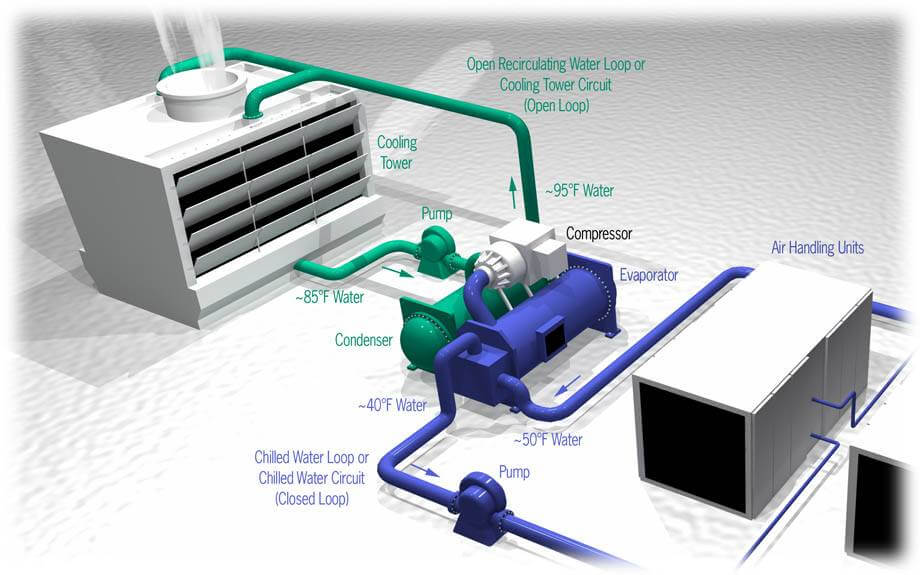Your Guide to Selecting the Right HVAC System for Your Requirements
Choosing a suitable Heating and cooling system is a vital choice that can significantly impact convenience and energy efficiency in your home. In addition, recognizing the different types of systems readily available and their energy rankings can assist direct your choice.
Recognizing A/c System Types
When picking an a/c system, it is necessary to understand the various kinds offered to meet your details requirements. The primary groups of heating and cooling systems consist of air conditioning systems, ductless mini-split systems, heat pumps, and heater systems.
Central air systems are developed to cool down several rooms utilizing ductwork to disperse conditioned air. They are suitable for larger homes needing regular temperature control. Ductless mini-split systems, on the various other hand, offer adaptability and efficiency, as they permit zoning capabilities, making it possible for individual space temperature law without the requirement for ductwork.
Warmth pumps run by moving warmth instead than creating it, making them an energy-efficient alternative for both home heating and cooling. On the other hand, heater systems use combustion to create heat, utilizing either gas, oil, or power.
Each system has distinct advantages and considerations, including installation demands, maintenance, and general expenses. Understanding these types will help homeowners make educated choices based on their particular demands, climate, and budget plan restrictions, ultimately guaranteeing optimal convenience and performance.
Reviewing Power Effectiveness
Power performance is an essential variable in the selection of an A/c system, as it directly influences both energy prices and ecological sustainability. The Seasonal Power Efficiency Ratio (SEER) and the Heating Seasonal Performance Factor (HSPF) are important signs for air conditioning systems, representing their effectiveness over a common cooling and heating period, specifically.
Additionally, seek systems that have actually gained the power celebrity tag. This qualification symbolizes that the tools meets stringent power performance standards established by the united state Environmental Protection Company. Think about the system's variable-speed innovation, which enables for extra effective operation by readjusting the result to match need, better improving power savings.
Additionally, appropriate insulation and duct securing can considerably influence the system's total performance. In recap, selecting an energy-efficient a/c system not just lowers your power expenses but likewise contributes to a more lasting atmosphere, making it a necessary factor to consider in your acquiring process.
Assessing System Dimension
Picking the suitable dimension for a cooling and heating system is critical to making sure optimal efficiency and performance. A small system might struggle to maintain preferred temperatures, resulting in enhanced wear and tear, higher energy consumption, and decreased comfort. Alternatively, a large system can bring about quick cycling, which not just triggers inefficiencies but additionally influences humidity control and air top quality.
To examine the excellent sizing, it is important to carry out a load estimation, which thinks about variables such as the square footage of the space, insulation levels, window dimensions, and regional environment conditions Resources - furnace repair. This calculation aids establish the British Thermal Units (BTU) required for heating & cooling. In addition, it is important to account for particular needs, such as the number of owners and the presence of heat-generating appliances

Installment Prices and Spending Plan
A comprehensive understanding of installation expenses is necessary for home owners and organizations taking into consideration a brand-new cooling and heating system. The complete expenditure of installment can differ commonly based on a number of elements, including the type of system, the intricacy of installment, and the place of the residential property. Typically, setup costs can vary from $3,000 to $10,000, relying on the system's dimension and effectiveness.
When budgeting for a heating and cooling system, it is important to consider not only the first setup costs but additionally any type of added expenditures that may occur, such as ductwork modifications, electric upgrades, or authorizations. In addition, it is a good idea to acquire view website multiple quotes from accredited a/c professionals to ensure affordable pricing.
Home owners must also consider the potential lasting cost savings connected with energy-efficient systems. While the in advance prices may be greater, energy-efficient designs can lead to considerable savings on utility costs in time.

Upkeep and Durability Factors To Consider

Appropriate upkeep consists of regular evaluations, filter replacements, and cleansing of coils and air ducts (furnace installation). Disregarding these jobs can lead to decreased effectiveness, boosted power costs, and premature system failure. Property owners must additionally take into consideration the availability of service contracts, which frequently offer scheduled maintenance and priority service, guaranteeing that the system stays in peak condition
Longevity varies by system type; for instance, well-maintained central air conditioning units can last 15 to 20 years, while heatpump may have a lifespan of 10 to 15 years. Selecting a system with a solid online reputation for integrity, in addition to purchasing normal upkeep, can significantly enhance the system's resilience. Additionally, choosing higher-efficiency models might bring about long-lasting cost savings on energy bills, stabilizing the initial financial investment gradually.
Final Thought
In verdict, selecting a proper HVAC system requires careful consideration of numerous factors, including system kinds, energy effectiveness, and dimension. Ultimately, a well-informed choice will certainly enhance comfort and performance in residential atmospheres while maximizing energy cost savings.
Picking an appropriate Heating and cooling system is an essential decision that can considerably affect comfort and power efficiency in your home.Energy effectiveness is an important factor official statement in the selection of an A/c system, as it straight influences both energy prices and ecological sustainability. The Seasonal Power Efficiency Ratio (SEER) and the Heating Seasonal Performance Factor (HSPF) are important signs for air conditioning systems, representing their effectiveness over a normal air conditioning and home heating period, specifically. Choosing a system with a solid track record for dependability, along with spending in routine maintenance, can considerably improve the system's longevity.In verdict, selecting a suitable HVAC system demands mindful factor to consider of numerous elements, including system types, power effectiveness, and size.